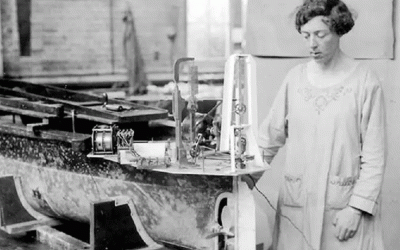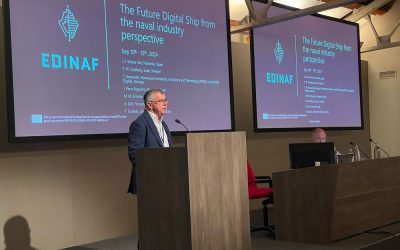High blood pressure, or arterial hypertension, is a chronic condition that appears insidiously in middle age.
The causes are difficult, perhaps impossible, to identify with certainty; it could be caused by genetics, lifestyle, related to an underlying health condition, or any combination of these factors. A further problem arises in determining what bearing hypertension may have on mortality and as an underlying cause for other afflictions such as strokes and heart disease.
The prevalence of hypertension among seafarers is well established and, some might say, unsurprising. Historically, seafarers are habitually unhealthy; smoking, high cholesterol and obesity, combined with a sedentary lifestyle in which they can spend long hours confined to increased risk. British-Danish research in the 1980s and 1990s found that cardiovascular disease (for which hypertension can be a contributory factor) accounted for 55–70% of all natural causes of death among seafarers. Another study in 2016 found that Danish seafarers were three times more likely to be diagnosed with hypertension than a reference group, with the high rate among younger seafarers being a particular cause for concern. Similar studies have found the same for French, Spanish and German mariners.
What's more contentious is the possible connection between shipboard noise levels and high blood pressure. A 2020 review of epidemiological studies by German researchers published in The International Journal of Environmental Research & Public Health found what it described as a 'high quality of evidence' that occupational noise exposure increases the risk of hypertension, concluding that above the 'safe' level of 85dB, 'the risk of developing hypertension was more than three times higher relative to the comparison group'.
Engine room prevalence
Among the papers selected for that review was a 1986-published French study led by Dr. Dominique Jégaden, a specialist in seafarer health and subsequently president of the French Society for Maritime Medicine. For this study, 455 seafarers were recruited aged between 40 and 55 years old. The diminished hearing sensitivity at higher frequencies, or audiometric 'notch' at 4,000Hz that's typical of regular subjection to noises over 85dB, was found to be common among the 164 room personnel but not so the 291 deck crew. Furthermore, there was increased prevalence of confirmed hypertension among the engine room personnel (19%) compared to deck crew (11%, typical of the general French male population of the same age at that time).
The study found no statistical relation between hearing loss level and hypertension, and was independent of other hypertension risk factors such as obesity, alcoholism or heredity. However, it did find a link between hypertension and those seafarers who had spent more than 20 years subjected to unsafe noise levels.
"Concerning seafarers, this problem has been studied very little because I think I am the only researcher to have worked on this subject," Dr Jégaden tells The Naval Architect, 35 years later. "The interest of the seafarers who are included in my study was that they all came from the same region (Brittany), that they had the same way of life, that they were embarked on the same merchant ships, that they ate the same food, that they had the same average age and an equivalent smoking… In short, the only thing that differentiated them was the noise exposure among the mechanics, compared to the deck crew."
He adds: "My statistical study also showed an odd-ratio of 1.62 and an independent relationship to other causes of hypertension such as heredity or obesity. I concluded that this relationship does exist if the occurrence of hypertension is related, on the one hand, to a high level of noise (>85 dB(A)) and, on the other hand, to a duration of exposure to noise for more than 20 years."
Despite this, Jégaden is reticent to state with certainty that there is a link between hypertension and noise. "Studies where published which show that cardiovascular morbidity and mortality are important in seafarers. But it is difficult to link this to only hypertension, because other causes are also very present in this population."
The adoption of IMO's Noise Code (Resolution MSC.337 (91) in 2012 (effective since 1 July 2014)), established requirements for vessels ≥10,000gt that Jégaden believes should also be valid for smaller vessels. Nonetheless, he recommends a level of <50dB (A) for sleeping areas, since below this threshold allows for a good night's sleep.
He notes that significant progress has been made in soundproofing in recent years, particularly on cruise ships, although this appears to have been done for passengers' comfort more than that of the crew. In all likelihood most operators of merchant ships would baulk at the additional capex.
"Concerning propulsion, diesel-electric propulsion is an excellent compromise to reduce noise onboard. The automation of the means of propulsion also makes it possible to significantly reduce the working hours of mechanics, due to the noise, and therefore to reduce the risk. But maybe we will have to wait some years to hope to notice an improvement in the health of these seafarers," Jégaden concludes.





